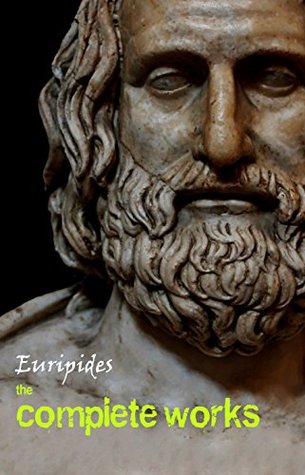Kindle Notes & Highlights
mother mine! from a palace dragged to face a life of slavery!
What champion have I? Sons, and city — where are they? Aged Priam is no more; no more my children now.
Highlights how dependent women were on men whether it be their husbands or sons, she has no champion now, not even a random Trojan man to defend her. She is like Andromache in Iliad book 6 in this way, knowing that without a man around she is as good as dead or a slave.
Adaora E liked this
No more shall I thy daughter share thy bondage, hapless youth on hapless age attending. For thou, alas! wilt see thy hapless child torn from thy arms,
No! she at least ne’er injured him. He should have demanded Helen as a victim at his tomb, for she it was that proved his ruin, bringing him to Troy;
there is not in the world a single man free; for he is either a slave to money or to fortune, or else the people in their thousands or the fear of public prosecution prevents him from following the dictates of his heart.
for very grief I fainted, cursing Helen the sister of the Dioscuri, and Paris the baleful shepherd of Ida; for ‘twas their marriage, which was no marriage but a curse by some demon sent, that robbed me of my country and drove me from my home.
Agamemnon, that famous king of the Achaeans, will find in me a bride more fraught with woe to him than Helen. For I will slay him and lay waste his home to avenge my father’s and my bretheren’s death. But of the deed itself I will not speak; nor will I tell of that axe which shall sever my neck and the necks of others, or of the conflict ending in a mother’s death, which my marriage shall cause, nor of the overthrow of Atreus’ house;
Adaora E liked this
all such Phrygians as escaped the warrior’s death lived ever day by day with wife and children by them-joys the Achaeans had left behind.
I was the mother of a race of gallant sons; no mere ciphers they, but Phrygia’s chiefest pride, children such as no Trojan or Hellenic or barbarian mother ever had to boast. All these have I seen slain by the spear of Hellas, and at their tombs have I shorn off my hair; with these my eyes I saw their sire, my Priam, butchered on his own hearth, and my city captured, nor did others bring this bitter news to me. The maidens I brought up to see chosen for some marriage high, for strangers have I reared them, and seen them snatched away.
Adaora E liked this
Anon the altars ran with Phrygian blood, and desolation reigned o’er every bed where young men lay beheaded, a glorious crown for Hellas won, ay, for her, the nurse of youth, but for our Phrygian fatherland a bitter grief.
if I set aside my love for Hector, and ope my heart to this new lord, I shall appear a traitress to the dead, while, if I hate him, I shall incur my master’s displeasure.
I thank thee, Menelaus, if thou wilt slay that wife of thine. Yet shun the sight of her, lest she smite thee with regret. For she ensnares the eyes of men, o’erthrows their towns, and burns their houses, so potent are her witcheries! Well I know her; so dost thou and those her victims too.
Essentially "the face that launched 1000 ships" she has an inhuman quality to her that makes her irresistable and the cause of great calamity.
she was the author of these troubles by giving birth to Paris;
when she comes to Argos she shall die a shameful death as is her due, and impress the need of chastity on all her sex; no easy task; yet shall her fate strike their foolish hearts with terror, e’en though they be more lost to shame than she.
But now ‘tis not thy hand that buries me, but I, on whom is come old age with loss of home and children, am burying thee, a tender child untimely slain.


